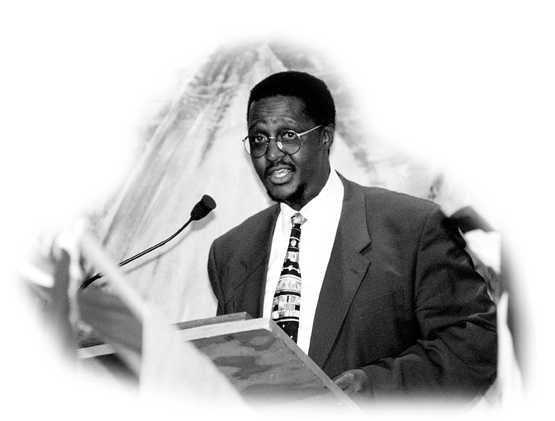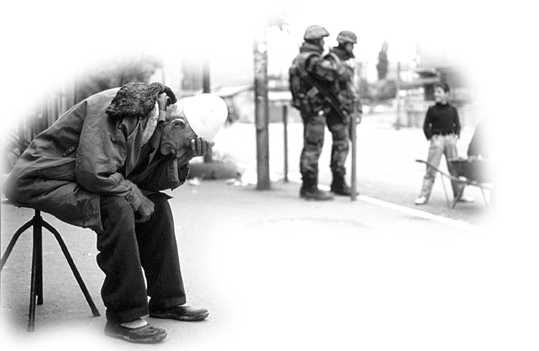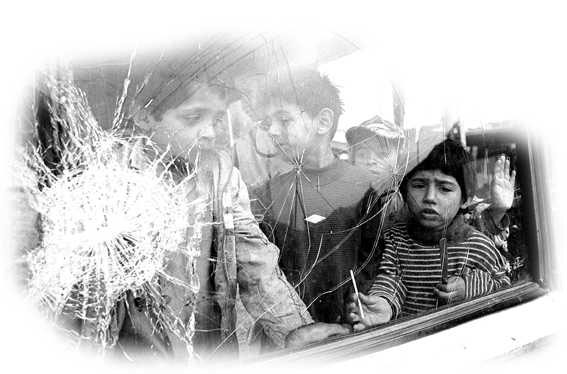
REDEFINING UNDERSTANDINGS OF RACISM
By N. Barney Pityana

|
REDEFINING UNDERSTANDINGS OF RACISM By N. Barney Pityana
|
 Dr. N, Barney Pityana - Photo: Chris Black, WCC |
At the beginning of this century, African American intellectual and social activist W.E.B. du Bois proclaimed that the 20th Century would face as its greatest challenge the problem of the colour-line. In fact, du Bois’ Souls of Black Folk did not get into any definition of Black or race. That became the preoccupation of scholars in the decades that followed. What is remarkable, though, is the extent to which du Bois’ words proved accurate. It is worth recalling the context. Slavery had been abolished some sixty years before. At Berlin in the 1880s the imperial and colonial powers divided Africa into a patchwork of colonial colours. Progress for the freed slaves was slow. They continued to suffer untold discrimination, and the promise of emancipation was not enjoyed by all. The end of slavery meant the growth of colonies. It was now no longer necessary to transport the human cargo across oceans. Instead, Black peoples all over the world were enslaved in their own lands. They no longer owned the lands that belonged to their forefathers. The wealth of their lands was only for the benefit of the imperial masters. Their nation’s treasure was transported to lands far away. Du Bois’ crystal-gazing was not too far-fetched. It was hardly a prophecy. In the intervening period, we have had two world wars, both of which had the problem of the race-line very much at the centre. The first war ended with even more sophisticated methods of dividing the spoils. The second in its barbarity caused such outrage that there was a determination to bring all injustice and racial discrimination to an end. Twice during this century, racism has divided and torn nations apart, brought about conflict and untold human misery. In addition, a collective programme was adopted which committed all nations to common standards. Instead of the sophisticated trust territories of the previous war, 1945 accelerated the independence of colonial states and began the roll-back of empires. |
 Mitrovica, Kosovo, where ethnic cleaning has been brought into the world’s vocabulary- Photo: Mikkel Östergaard, WCC. |
The Universal Declaration of Human Rights (UDHR) (1948) states this unequivocally:Whereas disregard and contempt for human rights have resulted in barbarous acts which have outraged the conscience of mankind, the advent of a world in which human beings shall enjoy freedom of speech and belief and freedom from fear and want has been proclaimed as the highest aspiration of the common people.The declaration was perhaps the first effort at setting universal, international standards of achievement for all peoples and all nations and for all time. The other declarations - from Britain, France and the United States of America - were never designed consciously to have international application. The UDHR’s first article declares boldly that: All human beings are born free and equal in dignity and rights.It is not without significance that the UDHR starts as it does. The world as it was then known was torn apart by racial bigotry. Slavery, after all, was racism par excellence and what followed it was the conti-nued practice of racial discrimination, albeit by another name. The UDHR simply had to address the perennial problem of relations between peoples, within, without and between states. Du Bois, who continued to champion his vision of pan-Africanism until his death in Ghana in 1963, would have felt a resonance with the Declaration. But we have moved some way since then. Not only has the standard-setting process, begun in Paris in 1948, continued in leaps and bounds, but we are today faced with the project of refining, interpreting and implementing these standards and norms. The international community went on to adopt principles of humanitarian law building on the 1948 conventions. Later two covenants - the Civil and Political Rights, and the Economic Social and Cultural Rights, 1966 covenants - were enacted. The conventions that followed, beginning with the International Convention for the Elimination of All Forms of Racial Discrimination, sought to establish an internationally applicable and obligatory regime of rights which could be enjoyed by all people everywhere. In 1963 the UN General Assembly adopted the landmark Declaration on the Elimination of All Forms of Racial Discrimination. The Declaration states that racial discrimination is not only a violation of human rights and fundamental freedoms, but goes on to say that it is "an obstacle to friendly and peaceful relations among nations and as a fact capable of disturbing the peace and security among peoples". The International Convention came into force in 1969. It is worth remembering that international action against racism was influenced by the horror felt by the world community at the Sharpeville Massacre - it was a case of Nazism revived. And so, not only was the Declaration and the Convention adopted, but 21 March, the day of the Sharpeville shootings, became the International Day for the Elimination of All Forms of Racial Discrimination. |
 Displaced Roma children in North Mitrovica. - Photo: Peter Williams, WCC. |
Fifty-one years after the Universal Declaration was adopted and proclaimed and 30 years after the Convention came into force, Ms Mary Robinson, the UN High Commissioner for Human Rights, has announced in Geneva that a World Conference Against Racism, Xenophobia and other Forms of Intolerance will be held in South Africa, possibly in July/August 2001. Why is it necessary to hold this major international event? Not only have there been two previous world conferences, but there have also been two UN Decades to Combat Racism and we are into the third such decade. There has also been the World Conference on Human Rights, held in Vienna 1993. That conference urged all governments "to take immediate measures and to develop strong policies to prevent and combat all forms and manifestations of racism, xenophobia or related intolerance..." Today, wars are still being fought across racial divides. How else does one explain the conflagration in the former Yugoslavia, where ethnic cleansing has been brought into the world’s vocabulary? How else does one understand Kosovo and even Chechnya? Nearer home, how does one explain the wars in Congo, the genocide in Rwanda, the conflict in Burundi, the Sudan and elsewhere in Africa? What about the atrocities in Sierra Leone, where a population has been amputated and maimed in pursuit of race/ethnic goals, and where a false peace has been cobbled together? We are discovering just how painfully true the statements of the Universal Declaration and the Declaration on the Elimination of Racial Discrimination were. Clearly strategies for the removal of racism have not borne fruit. Racism continues to be tolerated in too many countries of the world and international instruments and propaganda have not brought an end to its practice and influence. The examples here are probably evidence of the worst forms, and outcomes, of human rights violations, but there are others more subtle and more intractable that the world has to confront. There is a need for a diagnosis as to why, with so much of the world’s attention focused on racism for so long, we are still confronted with this scourge? At the end of du Bois’ century we have not succeeded in eliminating racism from the map of the world. |
| Racism is embedded in language and perceptions; it is brought into being by power, and its effect is to exclude others. Often, it is a collective denial of the humanity of the other. | Neither the Declaration nor the Convention specifically mentions racism as such. What the Declaration does is to couch the definition of racial discrimination in the widest possible terms. Some may argue that this is so wide that it becomes a catch-all and takes away the particularity of racism. By so doing it allows much to come under the rubric of racial discrimination. But we now face the task of
having to refine understandings of racism as distinct from mere racial discrimination. Racism is much more vicious, marked by violence and violations of the right to dignity. Racism is not merely individual attitudes about others, or mere separation on the basis of visible characteristics, or prejudice and social practices. Racism is embedded in language and perceptions; it is brought into being by power, and its effect is to exclude others. Often, it is a collective denial of the humanity of the other. Once that denial of humanity has been established, it then opens the way to treating persons as less than human. It is an ideology that justifies the treatment of others as less than human. Other forms of racism have also become apparent, like xenophobia, as well as racism based on ethnic difference. All must be confronted with like passion and vigour. It is vital that racism is named as such, and revealed for what it is. The one who is a victim of it best understands racism. It therefore behoves those who are at the receiving end to name it. Theo van Boven, a member of the Committee for the Elimination of Racial Discrimination, reports that in a recent survey on racial attitudes, some sixteen states denied that racism existed in their countries at all. The reality, however, is that every country in the world these days experiences the reality of racism and racial attitudes. Forms of denial range from denial of the concept, as having no scientific validity (as in classical Marxist-Leninism) as a false doctrine, therefore, (analogous to the Hegelian false consciousness), to a denial that any given set of circumstances constitutes racism. This is often done by explaining situations away in a race-neutral fashion, attributing them to "merit" or to a "legitimate pursuit of excellence", or by accusing the complainant of reverse, or inverted, racism. In almost all circumstances, racists are defensive and counter-label their accusers. Many of these denials have become part of the vocabulary of apologetics in the new South Africa. The Minister of Justice and Constitutional Development has tabled draft legislation in parliament in the form of the Promotion of Equality and the Prohibition of Unfair Discrimination Bill, 1999. The bill seeks, among others, to proscribe racism and racial discrimination, and to prohibit the dissemination of all ideas which promote and propagate racial superiority. The objective is to establish substantive equality. There are many who argue that such legislation would be in contravention of the Constitution, especially where freedom of speech is concerned. Others believe that the law will proscribe affirmative action. Almost everybody professes a commitment to equality, but believes that normal business and trade policies and practices will fall foul of the law and thus cause the flight of capital and investments. The law has invariably been described by the media as "draconian". We have found that one way of frightening off investors, or undermining any serious action against racism in this country is both to proclaim revulsion for racism and racial hatred and, at the same time, resist all efforts at doing something meaningful about it. The menu that is being offered us is a do-nothing menu. Meanwhile racial violence is rife in South Africa. Ask any farm labourer. Too many young professionals are being refused rented housing in Johannesburg. Banks and lending agencies are unashamed of redlining. This is being justified as a necessary and legitimate management of risk. Many of our people have no recourse against racism. Can one explain why, in this day and age, it makes sense for our national teams to be exclusively White when British and French teams sport more Black players than we do? What about racial profiling? Police and security firms, including debt collectors, indulge in racial profiling whereby the officer has a "hunch" that a Black person is more likely to be a criminal, a burglar or a hijacker. He acts merely on instinct. There have been many instances where Black South Africans have been thrown into jail because they are considered so dark that they could only be illegal immigrants. The equation of blackness with corruption, inefficiency and other forms of criminal conduct have become so commonplace that we are in danger of accepting it as fact as a matter of course. |
| The equation of blackness with corruption, inefficiency and other forms of criminal conduct have become so commonplace that we are in danger of accepting it as fact as a matter of course. | All governments are part of the international community. No country will be able to exercise authority in world affairs if it is unwilling to take its international obligations seriously, and to be a force for good at home and abroad. In the lead-up to the UN World Conference on Racism in 2001, all countries should dialogue and debate about how to construct a non-racial society; and take measures to eliminate and combat all forms of racism. In order to do that, the culture of denial or explaining the reality away must stop. Dr Nyameko Barney Pityana was Director of the World Council of Churches’ Programme to Combat Racism, based in Geneva, from 1988 to1992. He returned to South Africa in 1993 to take up appointment as Senior Research Officer at the Research Institute for Christianity in South Africa at the University of Cape Town. While at UCT, he undertook research in Religious Studies and was awar-ded the PhD in Religious Studies in 1995. He was admitted an Attorney of the High Court in February 1996. He was appointed a member of the Human Rights Commission in 1995 and elected Chairperson at the inaugural meeting of the Commission on 2 October 1995. He was elected to the African Commission on Human & Peoples’ Rights in 1997. He holds honorary degrees in divinity from Trinity College, Hartford, USA (1996) and another in law from the University of Buenos Aires, Argentina (1999). This article is an edited version of a Keynote Address to the NIPILAR Annual Duma Nokwe Human Rights Awards Ceremony, International Human Rights Day 1999. |